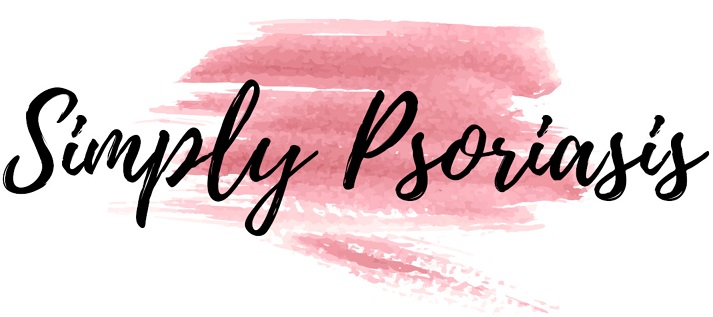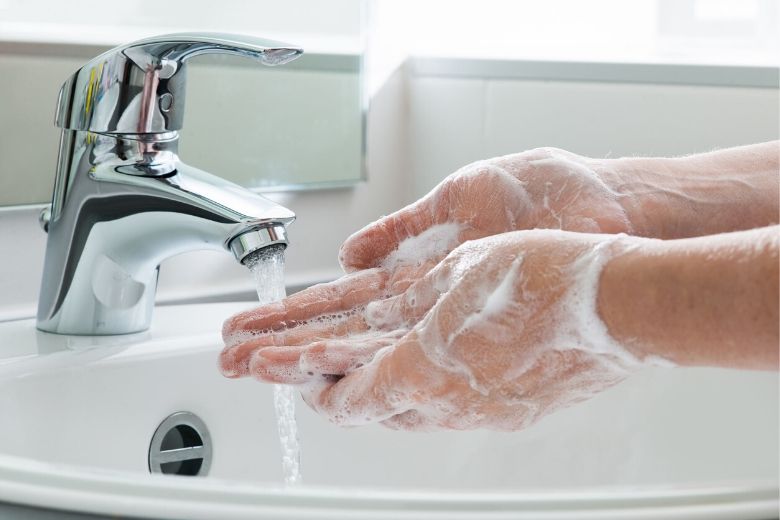Good personal hygiene keeps pathogens at bay and us humans healthy. But again and again the question arises whether there can be too much cleanliness. Particularly with regard to autoimmune diseases, excessive cleanliness is suspected of triggering diseases. Psoriasis, asthma and other symptoms can then be the result.
What is meant by hygiene?
Even if the term hygiene sounds exotic, everyone knows that it is all about cleanliness. The following definition explains the term in more detail:
“Hygiene is the science of keeping people healthy by keeping their bodies and clothes and working environment clean. This includes in particular measures that prevent the unintentional multiplication of bacteria and micro-organisms and thus the spread of diseases”. 1)
In simple terms, the aim is to maintain health and prevent disease. When talking about hygiene methods, this can concern the workplace (work hygiene) or private life. In this case, we are referring to personal hygiene.
What does “hygiene” mean?
The word comes from the Greek and means “to serve health”.
The history of hygiene
Even though modern disinfection methods have only been on the market for a few decades, the idea of hygiene is thousands of years old. Even in ancient times, sick people were brought to special sleeping places. This was intended to prevent the spread of epidemics. With the outbreak of the plague in the Middle Ages, the first attempts were made to systematically ensure cleanliness. People who died of plague were transported behind the city walls and the streets were cleaned of rubbish. Nevertheless, it took until the 19th century before systematic methods were introduced to contain the outbreak of disease. Disinfecting hands, identifying pathogenic bacteria and discovering penicillin are some of the milestones on the road to hygiene as we know it today.
What does good hygiene look like?
A good hygiene routine helps us stay healthy and keep germs at bay. But brushing your teeth and washing your hands regularly does not only have physical advantages. Studies show that good personal hygiene also has a positive effect on the psyche. After all, those who take care of themselves also feel better in their own bodies.
What are the ingredients of a good cleaning routine?
Of course, every person has their own sense of cleanliness. Which routines are considered good and sensible is also very individual. However, some components are considered part of a good hygiene routine.
Toilet
After using the toilet, you should wash your hands properly. Soap is best for this. This is rubbed into your hands for 20-30 seconds and then washed off again. It is also important that you do not forget the spaces between your fingers and nails. If there is no water or soap at hand, you can also use a disinfectant.
Bathing routine
How often someone takes a shower or bath depends on personal preferences. Most people shower at least every two days. Washing hair is also a very individual matter. The use of shampoo or soap removes old skin flakes and residues on the skin.
Nails
Also, the nails should not be forgotten in personal hygiene routines. Deposits and bacteria quickly collect under the nails. It is therefore recommended to shorten and clean the nails regularly.
Teeth
Dental health is not only important for a radiant smile. Healthy teeth significantly contribute to a healthy body. Therefore, teeth should be brushed regularly and checked by a dentist. Dentists recommend brushing your teeth and flossing in the morning and evening.
Hands
Since we use our hands constantly, they play a special role in keeping clean. They should be washed regularly. Especially in these cases:
- When you handle food
- Before you eat something
- If you touch trash
- After sneezing or coughing
- If you’ve touched animals
Of course, you should also wash your hands if you come into contact with sick people or wounds.
Can hygiene make you ill?
It is undeniable that hygiene plays an important role in staying healthy. Nevertheless, some voices oppose too much cleanliness.
Research shows that allergies and autoimmune diseases have increased dramatically in recent decades. This is particularly true in industrialized countries. Here, it is mainly city dwellers who stand out. In contrast, children who grow up on farms are much less likely to be affected by these diseases.
But what are the reasons for this? In order to comprehend the reasons, you have to understand how the immune system works.
The immune system
Our immune system protects the body from pathogens, pollutants and diseased cells (e.g. cancer cells).
The first protection against bacteria, harmful substances, viruses or similar is our skin. It shields the body from the outside. In this way, it prevents pathogens from entering our bodies.
Nevertheless, if a pathogen enters the body, our immune system attacks these pathogens.
The term immune system refers primarily to white blood cells. These are formed in the bone marrow and are also called leukocytes. A particularly important type of leukocytes are the lymphocytes. The lymphocytes act in different ways. A part of the lymphocytes, the T-killer cells, actively attack everything that seems foreign to them. Another part is called the B-cells. These B-cells form antibodies against everything they do not know.
When the body police are in balance and work together, they keep our body healthy. When this interaction is out of balance, infections, allergies and autoimmune diseases like psoriasis threaten.
The hygiene hypothesis
The basis for a strong immune system is that it had the opportunity to develop at a young age. When confronted with pathogens, the immune system desensitizes itself and forms antibodies. It becomes robust, so to speak, and builds up its arsenal of weapons. It is therefore important that our immune system comes into contact with microorganisms, bacteria and other stimuli.
Thanks to our high standards of hygiene and highly potent cleaning and disinfecting agents, we live in a very clean environment these days. This means that the immune system often does not receive enough stimuli to develop fully. Aggressive cleaning agents and the desire to live in a spotlessly clean household often result in there being hardly any microorganisms left in the environment. Frequent showers and strong disinfectants disturb the natural balance of the skin.
This germ-free environment has two serious effects:
On the one hand, it does not allow the immune system to develop properly and develop strong defense mechanisms. Secondly, an extremely clean household leads to the immune system beginning to react extremely sensitively. It gets out of balance and begins to attack its own body. Allergies and autoimmune diseases like psoriasis develop.
The theory of hygiene has not yet been fully proven, but some studies support this theory.
Hygiene and psoriasis
Psoriasis is an inflammatory skin disease with a chronic course. Due to an overreaction of the immune system, the skin cells divide much too fast. Painful skin areas, itching and dandruff are the result.
Based on the theory of hygiene, it is often said that too much hygiene can cause psoriasis. Through the lack of stimuli, the immune system overreacts and attacks its own body. As a result, autoimmune diseases can develop. Psoriasis is a typical disease that can occur in this context.
It is a fact that with increasing levels of hygiene, the number of people suffering from psoriasis has increased. It is also interesting to note that primitive people are hardly affected by psoriasis.
How much hygiene is healthy with psoriasis?
Finding the right level of hygiene is a very personal matter. People affected by psoriasis often observe their bodies and their reactions closely. They usually have a good sense of what is good for them – and what is not.
Here are a few tips on how the body can be supported in psoriasis.
Training the immune system
This point only helps preventatively – but it is a very important one!
To give the immune system the chance to develop, stimuli from the environment must take place. Children should therefore have the opportunity to spend a lot of time in nature. Especially in early childhood, the microorganisms from the environment ensure that the immune system is sensitized and forms antibodies.
Clean: yes! Germ-free: no!
The household should be cleaned with common sense. Of course, it is important that the living space is clean and worth living in. However, aggressive cleaners and excessive disinfection should be avoided. The presence of some microorganisms is absolutely harmless – and an important component for a healthy immune system!
Prefer naturalness
Many people affected by psoriasis have had a good experience with ingredients that are as natural as possible. Instead of strong cleaning agents, a vinegar cleaner is often sufficient. Instead of high-tech creams, perhaps a homemade facial toner or a few drops of evening primrose oil.
Healthy lifestyle
Even if this point is only marginally related to hygiene itself, we generally recommend a healthy lifestyle. A healthy diet, regular exercise and sufficient rest periods support the immune system. Foods such as turmeric, Omega 3 and fermented foods are special health boosters!
Trust yourself!
People with psoriasis often suffer from the prejudice that they pay too little attention to their hygiene. The scaly skin and itching often make outsiders think that their own personal hygiene is lacking. It is therefore especially important that you trust yourself and your hygiene routine. Only implement what is good for you and your skin.
Hygiene is important – but not everything!
Cleanliness is a very individual matter! Based on one’s own living conditions, personal preferences and circumstances, there are different perceptions of what is too little, just right or too much hygiene. For a healthy immune system, a little “uncleanliness” does not harm. On the contrary, it strengthens the immune system! This is especially important with regard to autoimmune diseases like psoriasis. Finding the right balance between dust and disinfectant is, however, up to each individual.
How do you deal with cleanliness?
Do you like to have it germ-free or are you more relaxed?
In our Facebook group, you can exchange ideas with other affected people at any time – we look forward to meeting you!
FAQ on hygiene and psoriasis
What is good hygiene?
Hygiene is understood to be all measures that are intended to keep people healthy. Good personal hygiene includes frequent hand washing, brushing teeth twice a day and regular showers. Which hygiene routine is the right one depends on the individual life situation, preferences and one’s own feeling of cleanliness.
Can hygiene make you ill?
Yes, research shows that there is a connection between excessive hygiene and illness. This is especially true in industrialized countries and urban areas. If children grow up in a germ-free environment, their immune systems cannot develop properly. Allergies and autoimmune diseases like psoriasis can be the result. It is therefore important that children spend a lot of time in nature in order to develop a strong immune system.
Are hygiene and psoriasis related?
Excessive cleanliness can be a trigger factor for psoriasis. If there are too few stimuli for the immune system during childhood, it cannot develop properly. As a consequence, this can lead to an overreaction of the immune system; autoimmune diseases develop. Psoriasis is therefore a typical disease that can occur as a result of too much hygiene.
Find all sources
1) Definition via https://www.sign-lang.uni-hamburg.de/hlex/konzepte/l4/l420.htm (status December 2019)
Strong defence: Our immune system – A medical miracle and its limits
Matt Richtel, HarperCollins Publishing House, 2019
Autoimmune diseases Understanding – Prevention – Treatment: Basic book for the disease-specific booklet series,
Ines Dr. Schöndorf, Altfell-Verlag, 2018
The hygiene hypothesis in autoimmunity: the role of pathogens and commensals,
Jean-François Bach, Nature Reviews Immunology, 2017, via https://www.nature.com/articles/nri.2017.111 (status December 2019)

Bernd is one of the founders of Simply Psoriasis. He has been suffering from psoriasis for more than 20 years, but sees the chronic skin disease with more composure than a few years ago (which was a hard work). Nevertheless, he is very keen to make psoriasis easier and more socially accepted.









Last Comments